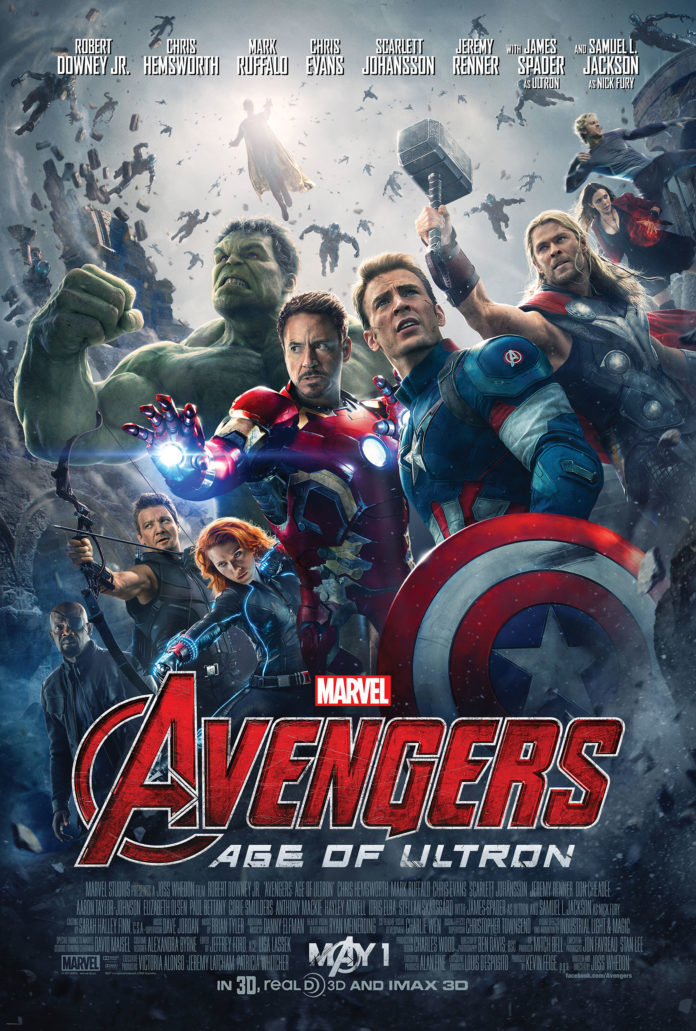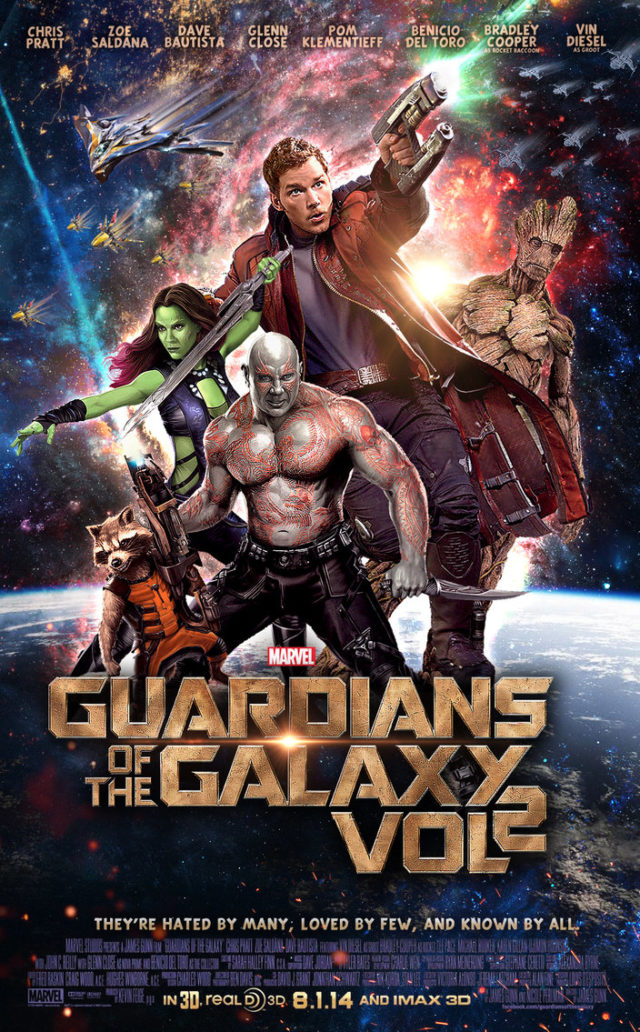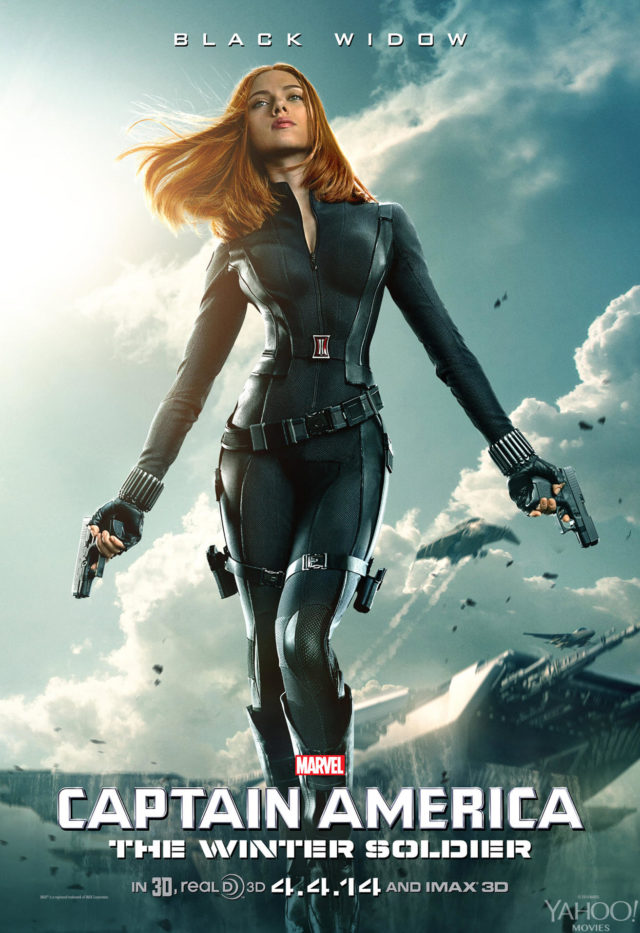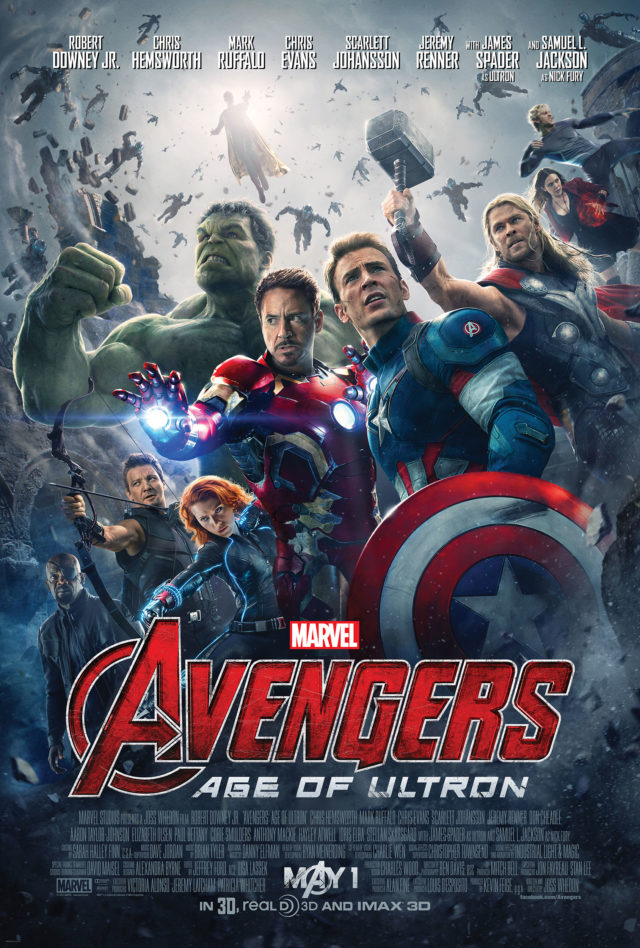By Molly Atchison | Print Managing Editor
Following the recent release of Marvel’s “Black Panther” and in anticipation of the upcoming “Avengers: Infinity War” release, it is the perfect time to revisit the Marvel Cinematic Universe (MCU). Over the next 3 weeks, leading up to the May release of the long-awaited “Infinity War,” I will be breaking down a group of movies in the MCU based off Digg.com’s Best Way to Watch the Marvel Cinematic Universe list. So sit down, grab your popcorn and your reading glasses, and prepare to have your Marvel-loving minds blown.
This week, we’re continuing an intergalactic journey with “Guardians of the Galaxy Vol. 2,” and then returning to earth to revisit old friends and new enemies in “Captain America: The Winter Soldier.” After that, we round out phase two with the second Avengers movie, where violence takes on a new meaning and millions of lives hang in the balance. As we move further into the series, the stakes grow higher, and our heroes face more challenges on personal and national fronts. Stay tuned to find out about the dramatic end of phase two.
Guardians of the Galaxy Vol. 2 (2017):
In the last article, we were introduced to the Guardians of the Galaxy crew, and we watched as they channeled an infinity stone, defeated their villain and displayed new avenues for the Avengers to explore as they approach the infinity stones. “Guardians of the Galaxy Vol. 2” embarks on a more personal mission, in which some stunning revelations are unveiled for Peter Quill and the gang.
Series Relevance: This Guardians movie brings personal struggle to the stage, increasing character development and offering an amazing plot twist, in addition to suggesting a connection between the Guardians and the rest of the world. However, like the first movie, the Guardians Vol. 2 lacked the connectivity to the rest of the series that other movies did, instead staying close to the original, opting for no crossover in characters, filming or concepts.The only content that was carried over from the rest of the Avengers films was the infinity stone storyline, for which we were offered some answers.
How Peter Quill was able to hold onto the infinity stone for so long without dissolving almost immediately like others had was a confusing plot hole in the first movie. The answer, viewers found in the second movie, was that Quill is the son of a powerful being called Ego, who described himself as a celestial. With this in mind, the Marvel Cinematic Universe is essentially adding another god to the mix and opening up plenty of doors for exploration into future handling of the infinity stones. The biggest plot hole we are left with after the Guardians Vol. 2 involves how earthlings treated Ego’s partial invasion, and how that will be used when the MCU decides to bring the Guardians and the Avengers together.
Entertainment Value: Like the last Guardians movie, this film was a bit of a diversion from the rest of the MCU, but the continued use of strong comedic undertones and the brilliant and bright coloration in filming seems to be a distinguishing factor that the directors decided was worth pursuing once again. For those who are able to separate the Guardians from the rest of the MCU and appreciate it for its incredible CGI and hilarious characters, Vol. 2 definitely delivered. However, skeptics are correct in its discontinuity, including the fact that the characters, while becoming much more likable in the sequel, are still not even remotely relatable to the audience. The Guardians provide entertainment, and the movies are incredibly well made, but they do not offer much for Marvel die-hards who are looking for a continuation of the series they know and love.
Cultural/Political Value: Although there are not many relevant cultural references, as the film relies greatly on nostalgic and dated humor, there is an underlying tone in this film about belonging, and more importantly, finding out who your family is. During Quill’s interactions with his birth father, he determines that finding your birth family does not always mean they are what you want or need them to be (especially because his dad has less-than-honorable intentions). This may resonate with some, and the MCU did a wonderful job of supplementing this message through reconciliation between Quill and his caregiver, Yondu, who makes a fatherly sacrifice to help Quill and the Guardians escape a harrowing situation. While Guardians Vol. 2 is still not the most relatable movie in the world, it’s definitely not lacking in cultural value as much as others.
Captain America: The Winter Soldier (2014):
Moving forward (or backward, in terms of release dates) we next look at Captain America’s journey since he woke up from the Biofreeze coma and was hurled into the 21st century fairly unceremoniously.
Series Relevance: This movie brings Captain America into the 21st century, where Cap plays a greater role than simply the leader of the Avengers. Cap is reaffirmed as a moral compass for the S.H.I.E.L.D. agency (as well as the Avengers initiative), and he grows into a new role and a new world through a serious crisis. The emergence of a new villain with a connection to Cap’s old life, in addition to the corruption of the agency he thought was helping him, throws our hero into a tailspin. However, the way he handles it, dismantling the entire organization responsible for organizing the Avengers initiative and saving the life of the villain he thought he would have to kill, ties nicely into the series as we close out phase two. The upheaval present in this movie is a great setup for the lack of organization we will see in the second Avengers movie, and the little scene at the end includes a teaser that will be essential to the second Avengers movie.
Entertainment Value: “Captain America: The Winter Soldier” continues the soft, humorous undertones of the first, and though it is a dark film, the use of light and more outdoor scenes make it much easier to take in. The movie also offers a larger role for Scarlett Johansson’s character, Black Widow. Being the small team Cap is left with in this film, Black Widow and S.H.I.E.L.D.’s coordinator, Nick Fury (played by Samuel L. Jackson), offer a new dynamic, helping the viewer better understand the Avengers team as a whole. While it’s a very entertaining movie topically, the plot is slightly too deep to be accurately covered in a two and a half hour movie. If the filmmakers had chosen to pursue at least one of the subplots more deeply, it would have been much less confusing for people who aren’t well-versed in the MCU.
Cultural/Political Value: This film has a mountain of political undertones, all of which connect to the theme of corruption in government. Captain America, literally named a hero for the American people, is tasked with righting the wrongs of a government organization. Cap not only organizes a resistance, but also stands as a reminder of a “simpler time” both for himself, and for America. He presents a crisis of freedom and instigates an uprising among the people, stating, “The price of freedom is high. It always has been. And it’s a price I’m willing to pay. And if I’m the only one, then so be it. But I’m willing to bet I’m not.” Cap’s words ring true in many ways, and the concept was incredibly well-received by the audience. The filmmakers played on Captain America’s patriotic narrative to make a political statement, and it definitely worked in their favor this time.
Avengers: Age of Ultron (2014):
Finally, we wrap up the second phase of the Avengers arc with the second Avengers film, “Avengers: Age of Ultron.” Like many sequels, this one wasn’t nearly as well received as the first Avengers, and that was because of a slightly confusing plot. Still, the “Avengers: Age of Ultron” was a film to be reckoned with, setting up viewers for an even more tumultuous third phase.
Series Relevance: As capstones for the Phases, and as a culmination of the individual storylines found in each respective Marvel movie, the Avengers films include some of the most relevant plots in the series. Bringing characters together at varying points in their character developments, the “Avengers: Age of Ultron” had large shoes to fill.
Unfortunately, the film struggled to do so. The confusing plot, complete with a self-created villain and randomly introduced characters such as the Maximoff twins, lacked the level of completion necessary to show any sort of continuity within the running series. It seemed like a divergence from the series as a whole, rather than the ending to a phase. The film lacked localization, taking place in several different locations and relying on international backgrounds as opposed to a central base of operations (such as the newly created Avengers Headquarters). It also proved the point that a super villain is always better when it is not self-created. The film’s downfall was twofold: attempting to create an internalized conflict of morality within the villain, and the effects of creating an uncontrollable power on an international scale.
The film did offer a sneak peek into the direction of the series, looking at the growing rift between the Avengers team, the struggle for leadership and the persistence of different goals. But it didn’t feel conclusive enough, leaving many to wonder what exactly was supposed to happen next.
Entertainment Value: Despite the lack of continuity and the convoluted conflict, “Avengers: Age of Ultron” was plenty entertainmening. The filming was dynamic and interesting, and the introduction of new characters sparked interest in new arc possibilities. However, the filming, much like that of the Thor movies and Iron Man 3, was far too dark, and made it even more difficult to determine what was happening. The movie lacked coherence, but it made up for it with comedic relief from the growing rivalry between Thor and the Hulk. Simply put: the film was interesting, but not dynamic enough to rank in the top MCU films.
Cultural/Political Value: Much like the other Avengers movie, there was a clear lack of cultural or political value. This is understandable, as the capstone film isn’t meant to portray a specific message, but rather to offer viewers a conclusion to one phase and a gateway into the next. The film touched on a few different concepts, including the overreach of “superior” countries into that of smaller, more centralized countries, and the resulting consequences. It also touched on internal political conflict, including a rift in several mentalities regarding leadership and interaction with outside organizations, but the message was not nearly as clear as in other films.
Moving into perhaps the most dramatic phase of the MCU, we will soon see the introduction of several new Avengers, the complete divide of the Avengers unit and even more death and destruction as we approach the much awaited “Avengers: Infinity War.” Tune in next week to find out what will be revealed in phase three.









